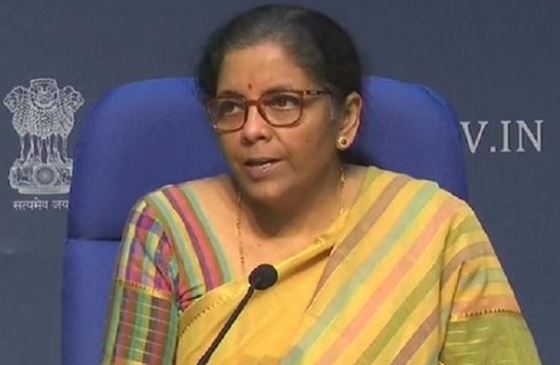New Delhi: The government on Thursday announced a Rs 3.16 lakh crore package of free foodgrains for migrant workers, concessional credit to farmers and working capital loan for street vendors as part of the second tranche of fiscal stimulus to heal an economy hit hard by coronavirus lockdown.
At a news conference, Finance Minister Nirmala Sitharaman said 8 crore migrant workers will get 5 kgs of grains and 1 kg of pulses free for two months, while 50 lakh street vendors rendered jobless by the lockdown would be given a working capital loan of Rs 10,000 each.
As many as 2.5 crore farmers will be provided Rs 2 lakh crore of concessional credit through Kisan Credit Cards.
Also for post-harvest (Rabi) and current Kharif crop requirements in May and June, NABARD will provide Rs 30,000 crore additional emergency working capital funding for farmers through rural cooperative banks and regional rural banks.
She also announced a Rs 70,000 crore boost to the housing sector through one-year extension of subsidised loan for affordable houses for the middle-income group with an annual income of Rs 6 lakh to Rs 18 lakh.
Sitharaman said the central government will bear Rs 3,500 crore cost of giving free foodgrain and pulses to migrant workers. State governments will be responsible for implementation, identification of migrants and full distribution.
Also to benefit of migrant workers, the government plans to allow inter-state portability of ration cards under public distribution system (PDS) so as to allow them to use their cards anywhere to get benefit.
For small businesses, the minister announced a 2 per cent interest subvention under MUDRA-Shishu loans of up to Rs 50,000. This would cost the government Rs 1,500 crore.
For street vendors, the working capital loan would cost Rs 5,000 crore.
She also announced Rs 6,000 crore employment push, using Compensatory Afforestation Management and Planning Authority (CAMPA) funds.
Prime Minister Narendra Modi had on Tuesday announced a cumulative package of Rs 20 lakh crore (nearly 10 per cent of GDP) to provide relief to various segments of the economy. This included Rs 1.7 lakh crore package comprising of free foodgrains and cash to poor for three months announced in March, and Rs 5.6 lakh crore stimulus provided through various monetary policy measures by the Reserve Bank of India (RBI).
The remaining of the Rs 20 lakh crore package is being announced in tranches – Sitharman had in the first tranche on Wednesday unveiled a Rs 5.94 lakh crore plan that mostly comprises of off-budget items such as Rs 3 lakh crore of credit line to small businesses as support to shadow banks and electricity distributors.
Off-budget items do not result in any outgo from the government exchequer but these will aid in easing liquidity constraints for businesses once the lockdown is lifted.
India had – beginning March 25 – imposed a three-week-long nationwide lockdown, the most far-reaching measure undertaken by any government to curb the spread of the pandemic. The lockdown, which brought most of the economic activity to a standstill as factories and businesses shut while rendering thousands temporarily unemployed, has since been extended twice through May 17, with some relaxations to allow the resumption of economic activity.
According to estimates, the lockdown may have led to 12.2 crore people losing jobs in April and consumer demand evaporating. (PTI)





